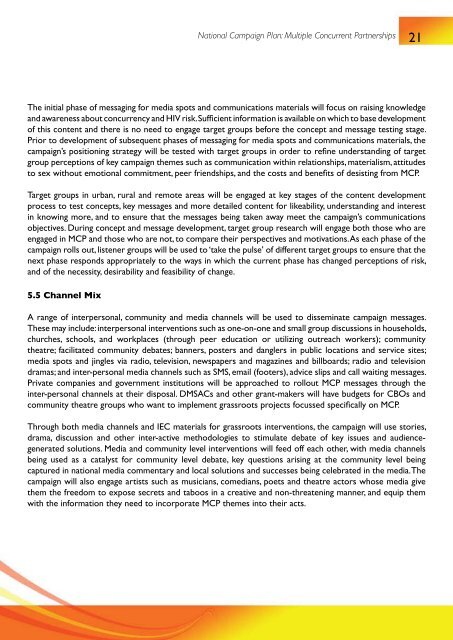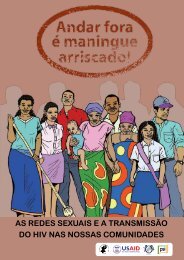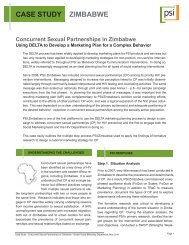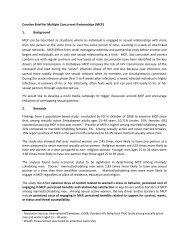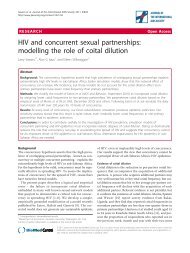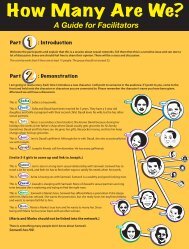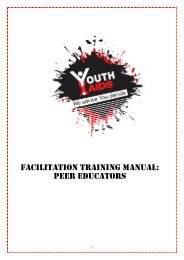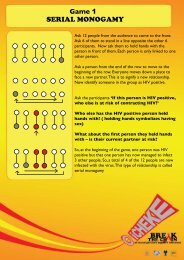O Icheke National Campaign Plan - CONCURRENT SEXUAL ...
O Icheke National Campaign Plan - CONCURRENT SEXUAL ...
O Icheke National Campaign Plan - CONCURRENT SEXUAL ...
- No tags were found...
Create successful ePaper yourself
Turn your PDF publications into a flip-book with our unique Google optimized e-Paper software.
<strong>National</strong> <strong>Campaign</strong> <strong>Plan</strong>: Multiple Concurrent Partnerships21The initial phase of messaging for media spots and communications materials will focus on raising knowledgeand awareness about concurrency and HIV risk. Sufficient information is available on which to base developmentof this content and there is no need to engage target groups before the concept and message testing stage.Prior to development of subsequent phases of messaging for media spots and communications materials, thecampaign’s positioning strategy will be tested with target groups in order to refine understanding of targetgroup perceptions of key campaign themes such as communication within relationships, materialism, attitudesto sex without emotional commitment, peer friendships, and the costs and benefits of desisting from MCP.Target groups in urban, rural and remote areas will be engaged at key stages of the content developmentprocess to test concepts, key messages and more detailed content for likeability, understanding and interestin knowing more, and to ensure that the messages being taken away meet the campaign’s communicationsobjectives. During concept and message development, target group research will engage both those who areengaged in MCP and those who are not, to compare their perspectives and motivations. As each phase of thecampaign rolls out, listener groups will be used to ‘take the pulse’ of different target groups to ensure that thenext phase responds appropriately to the ways in which the current phase has changed perceptions of risk,and of the necessity, desirability and feasibility of change.5.5 Channel MixA range of interpersonal, community and media channels will be used to disseminate campaign messages.These may include: interpersonal interventions such as one-on-one and small group discussions in households,churches, schools, and workplaces (through peer education or utilizing outreach workers); communitytheatre; facilitated community debates; banners, posters and danglers in public locations and service sites;media spots and jingles via radio, television, newspapers and magazines and billboards; radio and televisiondramas; and inter-personal media channels such as SMS, email (footers), advice slips and call waiting messages.Private companies and government institutions will be approached to rollout MCP messages through theinter-personal channels at their disposal. DMSACs and other grant-makers will have budgets for CBOs andcommunity theatre groups who want to implement grassroots projects focussed specifically on MCP.Through both media channels and IEC materials for grassroots interventions, the campaign will use stories,drama, discussion and other inter-active methodologies to stimulate debate of key issues and audiencegeneratedsolutions. Media and community level interventions will feed off each other, with media channelsbeing used as a catalyst for community level debate, key questions arising at the community level beingcaptured in national media commentary and local solutions and successes being celebrated in the media. Thecampaign will also engage artists such as musicians, comedians, poets and theatre actors whose media givethem the freedom to expose secrets and taboos in a creative and non-threatening manner, and equip themwith the information they need to incorporate MCP themes into their acts.


